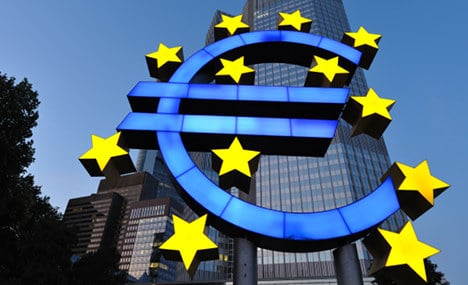“What is important for us is the free market, we do not necessarily need a common currency,” he told the foreign press association in Berlin. “Is there life for Germany after the euro? Yes there is.” Exporters “can live without the euro,” he added.
Börner was speaking one day after official data showed that record exports had pushed Germany’s trade surplus to a three-year high in September, indicating the country was bearing up fairly well in the eurozone debt crisis.
Germany, the world’s number two exporter after China, exported goods worth a total €91.3 billion ($124.9 billion) in September, 0.9 percent more than in August and the highest level since unification.
The BGA represents Germany’s exporters, mainly small- and medium-sized firms. Börner said that for those companies, “the amount exported to eurozone countries does not depend on the euro itself but on the free market and the absence of customs duties.”
Börner’s remarks stood in stark contrast to the line taken by German Chancellor Angela Merkel and other political leaders, who argue that “everything must be done” to protect the eurozone from falling apart.
Consultancy group McKinsey said in a recent study that two-thirds of the economic growth in Germany in the last decade could be put down to the introduction of the euro.
“An Italy which fails in the euro is just as disastrous as an Italy that fails outside of the euro,” Börner said, voicing scepticism at Rome’s ability to implement needed economic and fiscal reforms.
France also faces “a big problem of growth and productivity,” he added.
But he said that while the end of the euro would certainly pose a competitiveness problem for German companies, “with a reasonable monetary policy, and by agreeing with the unions,” they could be overcome.
“A good entrepreneur must think of a Plan B,” Börner said, stressing he did not want to see an end to the single currency.
But, if the euro did fail, Germany would probably join a bloc of other northern European countries with similar economic profiles such as Austria, Finland, the Netherlands and Denmark, he said.
AFP/mdm



 Please whitelist us to continue reading.
Please whitelist us to continue reading.
Member comments